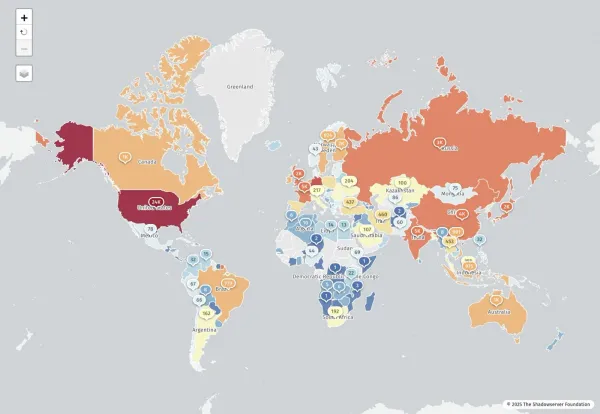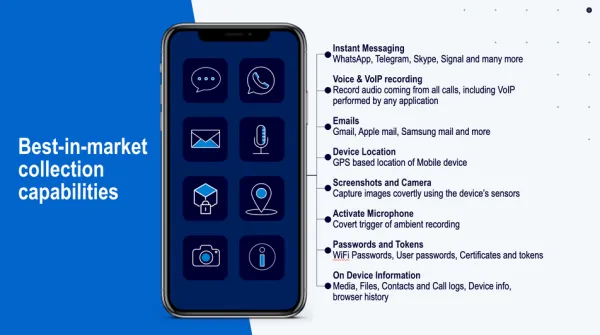China Accuses US of Orchestrating Prolonged Cyberattacks on National Time Centre

Beijing claims NSA used sophisticated tools to infiltrate critical infrastructure facility
BEIJING — China has leveled serious accusations against the United States, claiming that American intelligence agencies conducted extensive cyberattacks on its National Time Service Center, a critical facility that could impact everything from financial systems to power grids if compromised.
In a statement posted on WeChat on Sunday, China's Ministry of State Security alleged that the U.S. National Security Agency (NSA) has been carrying out "long-term, highly covert" cyber operations against the time centre over an extended period, with evidence of breaches dating back to 2022.

Strategic Importance of the Target
The National Time Service Center, affiliated with the Chinese Academy of Sciences and based in Xi'an, Shaanxi province, serves as the backbone of China's time standardization infrastructure. The facility is responsible for generating and distributing the country's standard time, providing highly precise timing services across critical sectors including communications, finance, power supply, transportation, mapping, and national defense.
Chinese authorities warned that any successful breach of the centre could have had cascading effects, potentially disrupting network communications, financial transactions, power distribution systems, and the maintenance of international standard time across the nation.
Details of the Alleged Attacks
According to the Ministry of State Security, the cyber intrusions began in March 2022, when the NSA allegedly exploited vulnerabilities in the messaging services of an unnamed foreign smartphone brand to steal sensitive information from staff members' devices. The ministry did not specify which brand was involved in the breach.
The Chinese security agency claims it uncovered evidence of stolen data and credentials from staff mobile phones and computer networks at the centre, which were then allegedly used to conduct surveillance and further penetration of internal systems.
Between 2023 and 2024, the NSA purportedly escalated its operations, deploying what Chinese authorities described as 42 types of "special cyberattack weapons" to target multiple internal network systems. The attacks allegedly attempted to infiltrate a key timing system at the facility.
"Ironclad evidence proves that the United States is the true 'hacker empire' and the greatest source of chaos in cyberspace," the Ministry of State Security declared in its statement, adding that "The U.S. is accusing others of what it does itself, repeatedly hyping up claims about Chinese cyber threats."
Escalating Cyber Tensions
The accusations emerge against a backdrop of deteriorating relations between Washington and Beijing, with both nations increasingly portraying each other as their primary cyber threats in recent years.
Western governments have repeatedly alleged that hacker groups linked to the Chinese government have targeted officials, journalists, corporations, and democratic institutions. Just last month, cybersecurity firm Mandiant reported that suspected Chinese hackers had breached U.S. software companies and law firms in an advanced espionage campaign aimed at gathering intelligence to support Beijing's position in the ongoing trade war with Washington.
The U.S. government said last year that a China state-sponsored actor was behind a cyber breach at the U.S. Treasury Department. Beijing dismissed those accusations as "groundless" at the time.
Trade War Context
The latest cyber accusations come at a particularly sensitive moment in U.S.-China relations, coinciding with renewed trade tensions. China recently expanded its rare earth export controls, while the United States has threatened to impose additional tariffs on Chinese goods.
Earlier this month, China's Ministry of Commerce released new rare earth export control documents in a format readable only by WPS Office, its domestically developed alternative to Microsoft Word. The move, which prevents access through American software, reflects Beijing's growing efforts to reduce reliance on U.S. technology.
No Immediate U.S. Response
The U.S. Embassy in China and the National Security Agency have not immediately responded to requests for comment on the allegations.
The Ministry of State Security stated it has evidence to support its claims but did not provide any documentation in its public statement. The ministry's allegations are likely to further fuel tensions between the two superpowers, adding another layer of complexity to an already strained relationship encompassing disputes over trade, technology, Taiwan, and regional security.
As both nations continue to trade accusations of cyber espionage, the incident underscores the increasingly prominent role that cybersecurity plays in great power competition and the vulnerability of critical infrastructure to sophisticated state-sponsored attacks.
The allegations remain unverified by independent sources, and the United States has not yet issued an official response to the claims.





